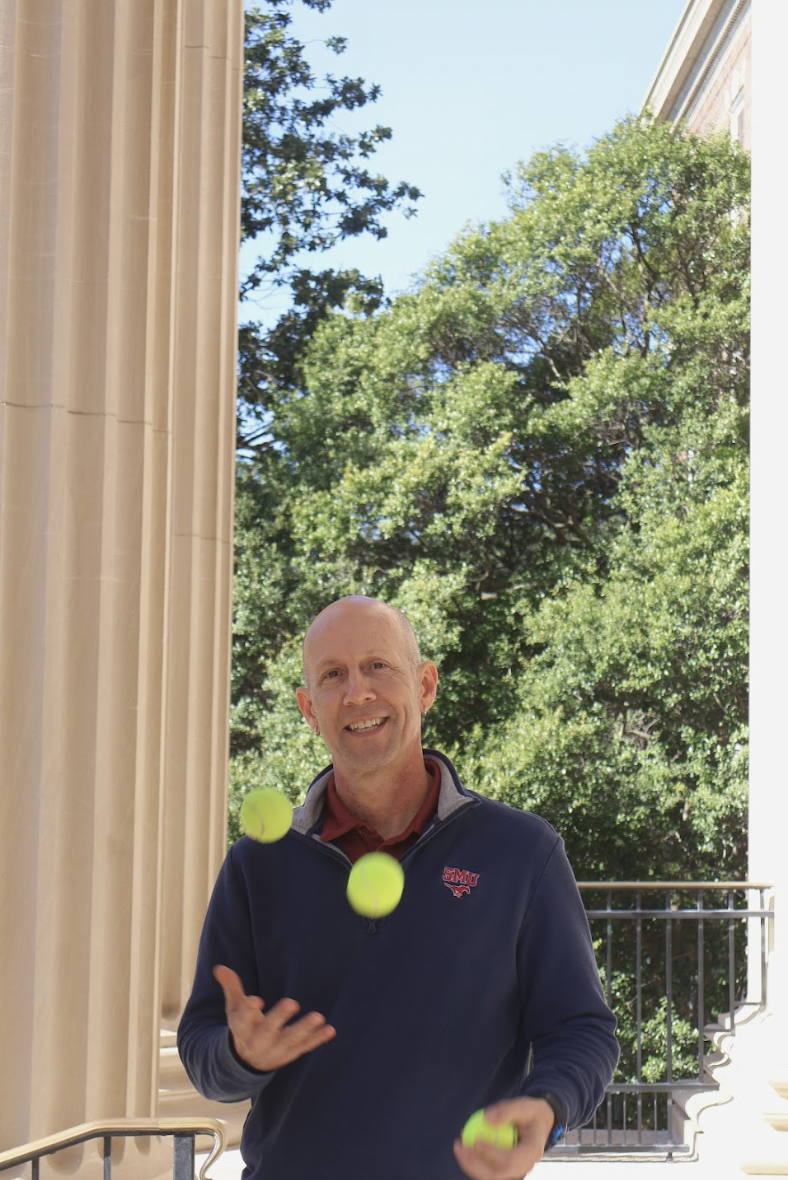Dr. Fennig
Featuring Brian Fennig, Ph.D.
Teaching Professor, University Foundations at SMU
If you are reading this, then you might be struggling through some changes in life.
You might be experiencing a shift in relationships, a new job, physical and/or mental health challenges, or even the existential transformation that comes with aging.
Change, of course, is inevitable, and no one is exempt. Some changes in life we can choose; we might even design and move toward them. Others, however, are thrust upon us and leave us feeling out of control. As so many wise folks have said, we don’t always get to choose what happens to us, but we can choose our response.
Therein lies the challenge: How do we respond to the many changes that come our way? In my classes, we speak directly about change, the trials that ensue, and multiple positive ways of adapting.
A first step toward a new transition in life is to simply embrace it; meet it head-on. After all, change in life is natural. Seasons change, academic semesters advance, grades go up and down, and students navigate through the various stages of time at the university. In 25 years of teaching, I have yet to enter a semester without some form of construction directly affecting the face of campus. New buildings rise; old buildings fall. The entire academic experience is about change as individuals evolve, one step at a time, from first-year students to graduating seniors.
Change is not always a riddle to be solved; sometimes the best response is to simply embrace the moment and then keep moving forward. I’ve heard some students refer to tough academic transitions as “hellish.” I remind them, if you ever find yourself going through hell, keep going! Movement is the key.
Change also presents a potent opportunity for gratitude. We often speak in my classes about gratitude and its complex meanings. We pull from philosophical, psychological, and even theological sources. Students might, for example, express gratitude for a high grade on a test if they study hard. Some express gratitude for having necessities in life: food, shelter, educational opportunities, etc. Gratitude, however, is not always about enjoyment and/or fulfillment but can almost always be about the value from an experience. How do we, for example, express gratitude while considering failure, the loss of a loved one, sickness, etc.? Failure teaches valuable lessons of humility and imperfection. Sickness informs us of our counterparts of what our lives normally feel like. Death, the ultimate lesson on change, teaches us the impermanence of life and the sobering truth that we are all mortal. Reflecting on tough lessons in life can help us learn how to live better, appreciate health, and find even greater value in the simple moments of our daily existence.
Finally, as you grapple with change and all the difficulties involved, just do your best and tell yourself that it’s okay. One favorite lesson in my class stems from our examination of Noel Burch’s Four Stages of Competence. We address the concept of learning something new by initially embracing the pain that comes with losing ignorance. Stepping from ignorance into awareness can be uncomfortable, embarrassing, and humbling, but it is the first step toward a new skill, mindset, and change. We test Burch’s theory by, without warning, working through a lesson on juggling. Yes, after some serious academic analysis of learning progressions and mentally moving concepts of unconscious incompetence toward conscious competence, I pull out a box of old tennis balls, and we literally begin tossing them into the air.
The classroom becomes chaotic and turns into a kind of human popcorn machine. Naturally, the lesson never affords enough time to muster competence in juggling, and that is part of the point. Students are thrust into a situation where they become hyperaware of their lack of proficiency with this new skill. They drop balls, bump into each other, and observe themselves immersed in the uncomfortable and real-time experience of something new and challenging. The message becomes apparent quickly, and the students get it. Most laugh at themselves and find joy in the moment.
If you are reading this, then you might still be trying to navigate the complexities of change in your life. After all, change often comes quickly and not always by choice.
Sometimes you fumble with it, fail, become embarrassed, and even labor through various forms of cognitive dissonance. None of us are exempt from these experiences, and sometimes we want to avoid the pain of change, but this is where the other half of the classroom lesson comes into play. When you find yourself facing sudden change; when you feel incompetent in grappling with something new, when you are embarrassed with what seems to be consistent struggle, and failure, tell yourself (out loud): “I’m just juggling.”
Meet your change head-on; laugh, cry, and embrace the bumpy ride. Then, keep moving; you’re going to be okay. :)
Brian F., Southern Methodist University
Connect With Us
To follow IfYoureReadingThis at SMU on Instagram, get in touch with our chapter, and learn about more resources available to SMU students, visit our chapter’s homepage.

